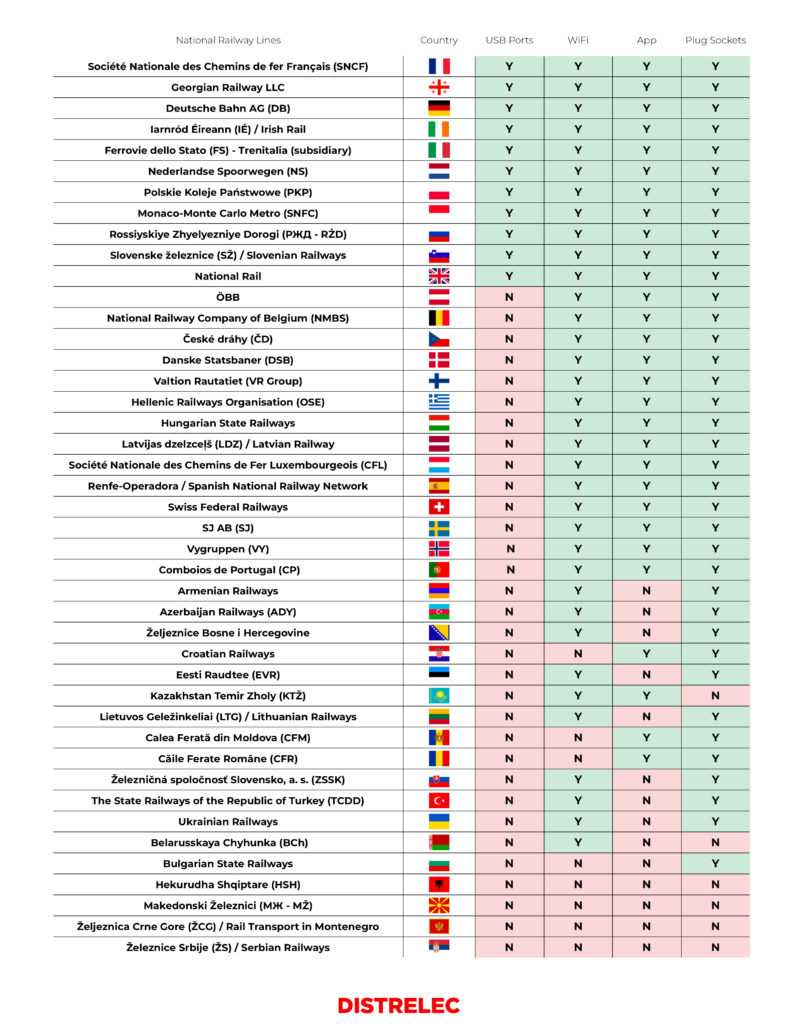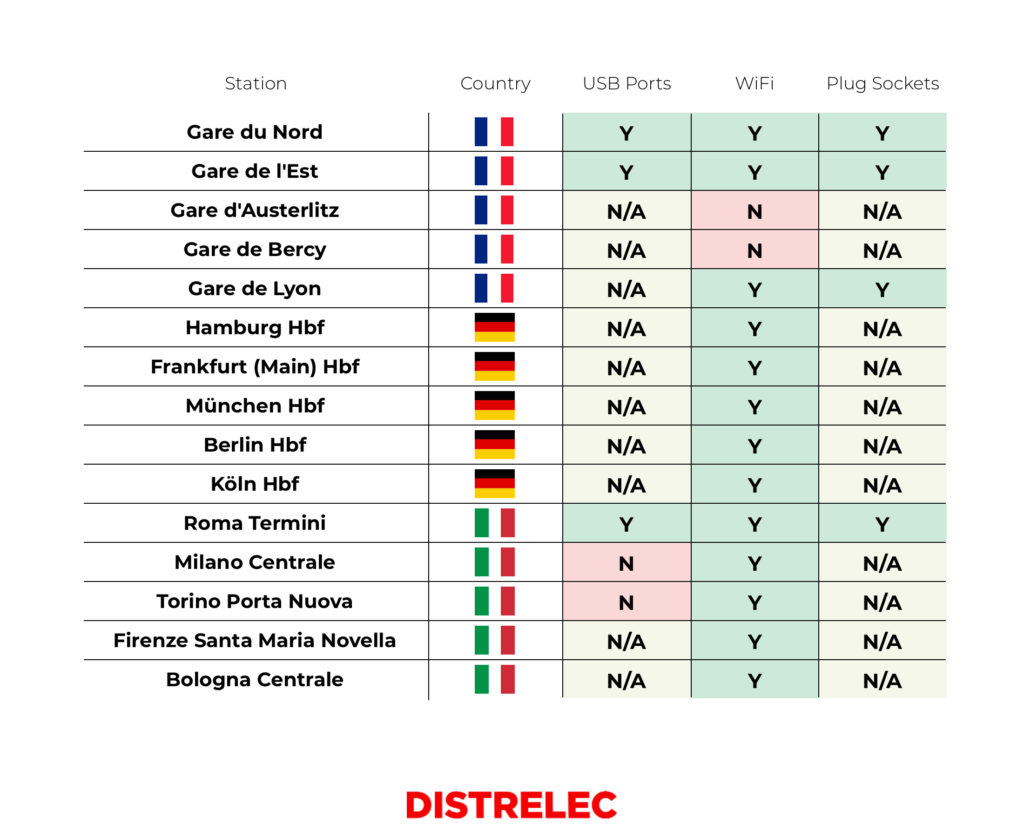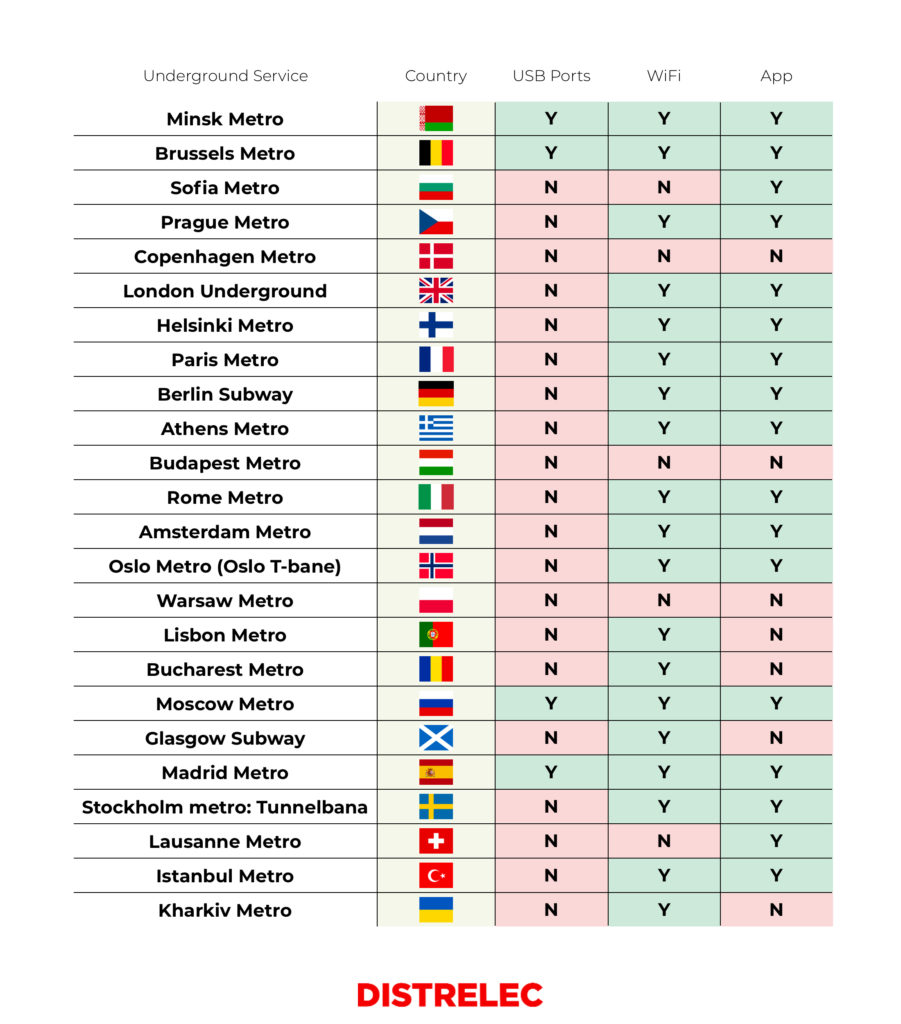Ask any cross-section of British rail commuters for their opinion on National Rail services and you may get an eclectic mix of replies. However, what may surprise some is that the United Kingdom’s National Rail ranks as one of the top providers of smart station facilities in Europe.
Using data from 44 of the continent’s national railway lines, the UK ranked alongside 10 others for providing all of the facilities in the criteria for smart stations, these include USB ports, WiFI, an app for services, and plug sockets to charge your devices. This may come as a surprise given the railway infrastructure of the UK pre-dates many other rail networks but in an age where connectivity is king, it would seem that Britain is at the forefront of these investments.

Best of The Best…
The other 10 that top the list also throw up some surprises in amongst its echelons with the usual suspects of larger, Western European countries making up most of the rankings with France, Germany, Italy, and Netherlands all also ticking off all four of the aforementioned criteria.
Perhaps less expected are the smaller nations such as Ireland, Slovenia, and Georgia who also round out the list of those who provide all of those facilities. Formerly a part of communist Yugoslavia, Slovenia became an independent sovereign state in 1991 and since then has taken great efforts to be at the forefront of modern technology and advance the lifestyles of its population. Interestingly, it has one of the lowest rates of income inequality in the world. The other top providers are Poland, Monaco, and Russia.
…and the Rest
At the other end of the spectrum, five countries sit at the bottom without providing a single one of these smart station services including the nearby neighbours of top performers Slovenia that are Serbia, and Montenegro. North Macedonia, Liechtenstein, and Albania also fail to muster up any one of these offerings.
Going Underground
Where Britain starts to become unstuck in its tech investments for rail is when we take a look at similar benchmarks for their metro systems. With these transport systems being subway services for busy metropolitan cities, not all countries have a need for these so only 25 across Europe were looked at as opposed to the 44 national railway lines.
The criteria also became less stringent with the provision of plug sockets for public use no longer being included. Even with fewer requirements to rank for all three of these amenities, only four metro systems matched up with the Brussels Metro of Belgium, Russia’s Moscow Metro, the Madrid Metro in the capital of Spain, and Minsk Metro of Belarus being the only top-dogs in leading the charge for smart stations underground. That last one is particularly interesting given that Belarus is still only recognised as a developing country by the United Nation’s Human Development Index.
Underground Underperforming
The London Underground provides WiFi and an app but fell short on giving passengers USB ports on their trains and stations. Glasgow Underground, more commonly referred to as Glasgow Subway or colloquially called ‘The Clockwork Orange’, has less still with no app to keep you updated on timetables or delays. However, being a far smaller system with considerably fewer commuters may play a part in this as it would be less of a pressing issue.
However, while the UK’s metro systems may not be able to supply all three of these provisions, they still beat Warsaw Metro in Poland, Budapest Metro of Hungary, and perhaps most surprisingly Denmark’s Copenhagen Metro. Given that, in the European Commission’s annual ranking, Denmark was considered the most digitised economy amongst the 28 member states it seems at odds with the nations forward thinking image when it comes to technology, that its capitals metro system would lack any smart stations or their subsequent features.
What’s the Importance of Smart Stations?
Distrelec believe in a globalised economy, where if you can’t do something instantly you’ve lost your competitive edge, staying connected is vital. Smart stations offer the ability to work, stay in contact and play on the move so that commuters can make the most of their downtime travelling without having that period be an unproductive length of time.
While some societies might place a great deal of importance on this connectivity, others may feel that you should not feel obligated to work or be contactable at all points in the day and may place less emphasis on putting such infrastructure in place. So if you’re looking to take a working holiday, Slovenia might be a good choice.













